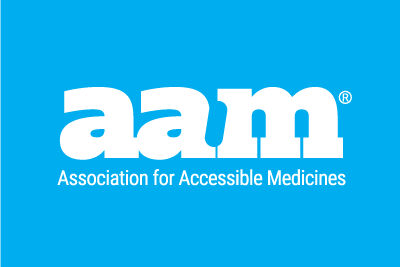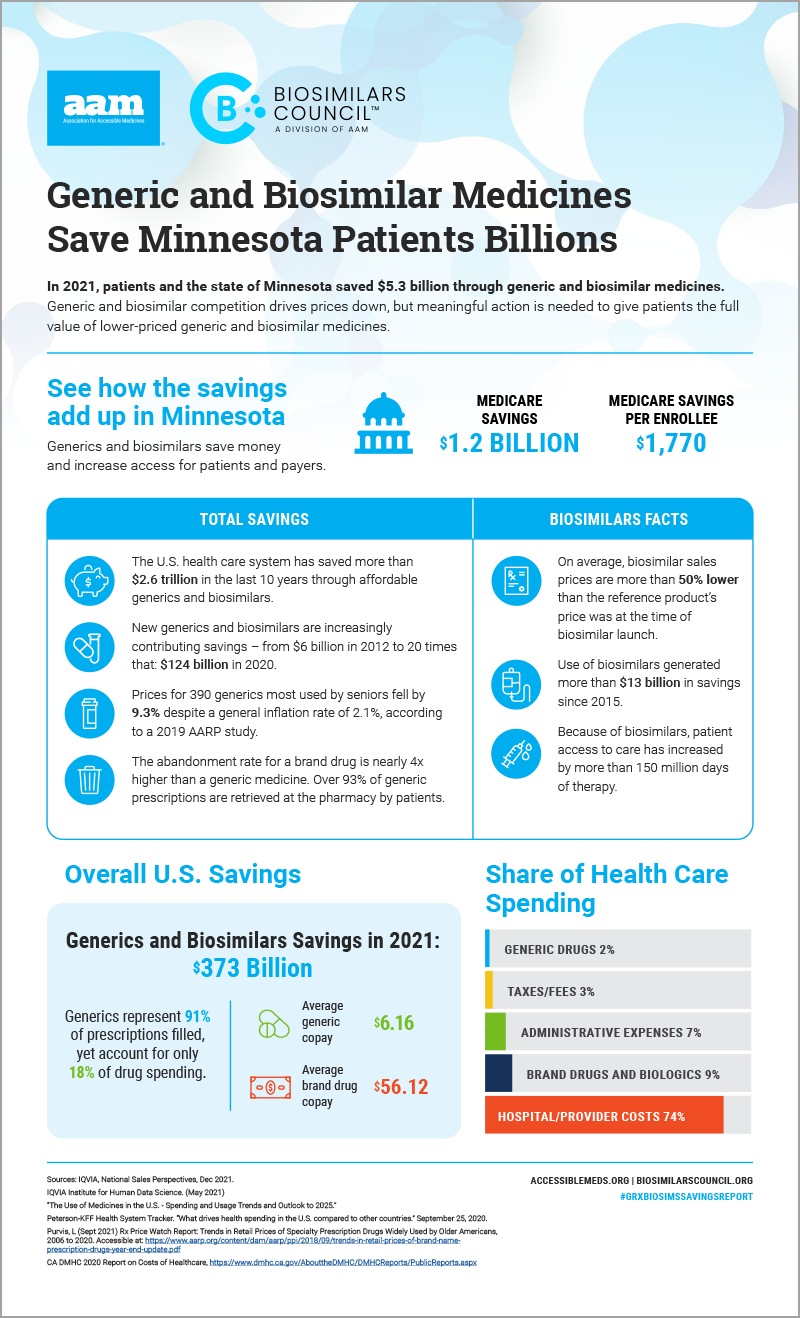Veto Illinois HB 1780 Which Puts Patient Access to Generic Medicines at Risk
The State of Illinois is considering legislation (HB 1780) to establish a statewide drug take back program funded almost exclusively by generic drug manufacturers. HB 1780, as currently drafted, would disproportionately impact the makers of low-cost generic medicines instead of the manufacturers of high-cost brand-name drugs. Generic medicines account for less than 2% of health care spending. Yet although generic manufacturers only generate a small fraction of the revenue of brand-name drug companies, generic companies will be forced to foot the bill.
State of the Union: Generic and Biosimilar Savings for States and Taxpayers
According to the latest U.S. Generic and Biosimilar Medicines Savings Report, Americans who took generics and biosimilars saved $338 billion in health care costs in 2020 and nearly $2.4 trillion in the last decade. These medicines provide budgetary relief throughout the U.S. health care system, and taxpayers in all 50 states benefit from the savings generated for Medicare and Medicaid enrollees. On average, states saved $6.6 billion from the use of generics and biosimilars in 2020.
AAM Statement on Maine LD 1117
WASHINGTON DC (June 16, 2021) – “The Association for Accessible Medicines (AAM) strongly encourages the Maine House of Representatives to oppose LD 1117. The fact is generic medicines drive cost savings for patients and increase access to life-saving treatments. According to the Maine Health Data Organization, every one of the 25 most costly prescription drugs in the state is a brand-name drug – none are generic medicines. LD 1117 misdiagnoses the problem of high drug prices and instead would only result in harming patient access to affordable generic medicines.”
Generic Medicines Provide Savings for Maine Patients
Recently, the Portland Press-Herald newspaper published two opinion pieces – an editorial and an op-ed – that promote Making Health Care Work for Maine, a package of bills in the state legislature that would give the state government tremen
Lisa Steelman Joins AAM as Vice President, State Government Affairs
WASHINGTON, DC (August 10, 2020) — Today Lisa Steelman is joining the Association for Accessible Medicines (AAM). As Vice President, State Government Affairs, she serves as a senior strategist and lobbyist in partnership with the Senior Vice President, Government Affairs, Chris Bowlin, and other members of the State Government Affairs team to represent AAM and its member companies’ interests before state legislators, regulators and other state and local governmental entities.
Stories and Data: How AAM Equips Advocates in the States
Drug prices matter to patients and their families. If a medicine isn’t affordable, it isn’t accessible. David Mitchell, founder of Patients for Affordable Drugs, has called drug pricing “a genuinely bipartisan issue.” The Association for Accessible Medicines (AAM) and our allies see federal and state solutions.
AAM Response to CA Governor Newsom Signing AB 824
WASHINGTON, DC (October 8, 2019)--
"As the Federal Trade Commission has found, recent patent litigation settlements have overwhelmingly accelerated the launch of more affordable generic and biosimilar medicines prior to the branded drug's patent expiration date.
A Generic Summer Savings Tour: How Did Your State Do?
The 11th edition of the Association for Accessible Medicines' annual Access and Savings Report (see summary) reveals how much money American patients and taxpayers saved in 2018 through competition from generic drugs and biosimilar alternatives to brand-name biologic medicines. The report provides data by state, based on findings by IQVIA. We’re releasing a detailed publication later this summer.
Some notable facts from the state data:
Patient Victory: Supreme Court Denies Review of Drug Pricing Law HB 631
WASHINGTON, DC (February 19, 2019) – Today’s decision is a victory for patients who depend on a strong national market for generic and biosimilar medicines. Maryland’s law would have allowed one state to dictate prices in the competitive national market for generic medicines that saved patients and taxpayers $265 billion in 2017.

